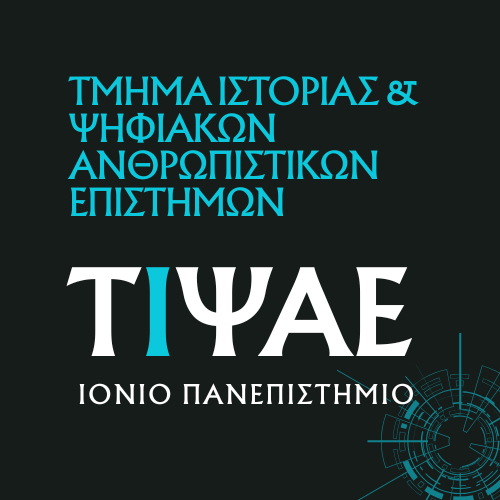THE KINGDOM OF MACEDONIA, THE CITY-STATES AND THE KOINON (END OF THE 4TH CENTURY BC - 167 BC)
Teaching Staff: Kralli Ioanna
Course Code: ΙΑΕ610
Course Type: Seminar
Course Level: Undergraduate
Course Language: Greek
Delivery method: Lectures
Semester: 6th
ECTS: 5
Teaching Hours: 3
E Class Page: https://opencourses.ionio.gr/courses/DHI271/
Curricula: Curriculum in History up to 2024-25, Curriculum in History and Digital Humanities from 2025
Macedonian expansion to the Greek mainland (mid-4th BC); control of non-incorporated regions through the establishment or support of timocratic/oligarchic or even tyrannical regimes. The different attitudes of the poleis and the sympolities towards Macedon, in different areas and at different times – the enemies and the allies of Macedon. The impact of Macedon on the economic-social and political life of the poleis and the sympolities. The crucial role of the Romans in the Greek alliances.
Upon completing the seminar the students must be in a position to analyze the sources and occasionally challenge their information; to interpret and evaluate the actions of the Macedonian kings, as well as those of the citizens and the leaders of the poleis and the sympolities. They must also be able to distinguish between different forms and degrees of control on the part of the Macedonian kings, as well acknowledge that relations of Macedon with the poleis and the sympolities were multi faceted.
- Macedonian expansion under Philip II (mid-4th BC to the battle of Chaironeia in 338/7) and the latter's role in the relations between poleis. – The different consequences of Chaironeia on the various poleis and sympolities. The League of Corinth.
- Alexander's 'between carrot and a stick" policies in the Greek mainland and Asia Minor respectively.
- The War of the Spartan Agis III against Macedon – the constitutional consequences of his defeat on his allies.
- The Age of the Diadochoi: upheaval, dissolvement of the Achaian Sympolity, the Aitolian Sympolity on the rise.
- The relations of Demetrios the Besieger with the poleis and the Aitolian sympolity before and especially after his ascent to the Macedonian throne.
- Antigonos II Gonatas and his role in the establishment or support of tyrannical regimes.
- The rivalry between Macedon and the Aitolian Sympolity and the consequent (constant) alliance of Macedon with the Akarnanian sympolity.
- The rivalry of the Achaian Sympolity against Macedon and the total reversal of this policy due to the Spartan resurrection.
- The Panhellenic League under Antigonos III Doson and later on under Philip V.
- The alliance of the Aitolian Sympolity with the Romans against Macedon.
- The attacks of Philip V on poleis of Asia Minor.
- The alliance of the Achaian Sympolity with Rome - the discord among its members.
- The dismemberment of the Macedonian kingdom by the Romans in 167 BC.
Aigner-Foresti, L., Siewert, P., Doukellis, P. and Zecchini, Z. (eds), Ομοσπονδίες στον αρχαίο κόσμο, Αθήνα 2004.
Beck, H. and Funke, P. (eds), Federalism in Greek Antiquity, Cambridge 2015.
Briscoe, J., ‘The Antigonids and the Greek states, 276–196 BC’, in P. Garnsey and C.R. Whittaker, C.R.(eds), Imperialism in the Ancient World, Cambridge 1978, 145–58.
Buraselis, K. Das hellenistische Makedonien und die Agais. Forschungen zur Politik des Kassandros und der drei ersten Antigoniden (Antigonos Monophthalmos, Demetrios Poliorketes und Antigonos Gonatas) im Agäischen Meer und in Westkleinasien, Μόναχο 1983.
Cambridge Ancient History, VII.1 (1984), VII.2 (1989), VIII (1989), Cambridge.
Carney, E., King and Court in Ancient Macedonia: Rivalry, Treason and Conspiracy, Swansea 2015.
Chaniotis, A. War in the Hellenistic World, Oxford 2005.
Gehrke, H.-J., Ιστορία του ελληνιστικού κόσμου, μτφρ. Α. Χανιώτης, επιμ. Κ. Μπουραζέλης, Αθήνα 2000.
Hammond, N.G.L. & Walbank, F.W., Ιστορία της Μακεδονίας, ΙΙ & III, Oxford [1988]
Hatzopoulos, M. B. Ancient Macedonia, Trends in Classics – Key Perspectives on Classical Research, Berlin 2020.
Le Bohec, S., Antigone Dôsôn, roi de Macédoine, Nancy 1993.
Larsen, J. A. O., Greek Federal States. Their Institutions and History, Oxford 1968.
Paschidis, P. Between City and King: Prosopographical Studies on the Intermediaries between the Cities of the Greek Mainland and the Aegean and the Royal Courts in the Hellenistic Period (322–190 BC), Meletemata 59, Athens 2008.
Roebuck, C. A., ‘The settlements of Philip II with the Greek states in 338 BC’, CPh 43, 1948, 73–92.
Roisman, J. & Worthington, I., A Companion to Ancient Macedonia, Wiley-Blackwell, Hoboken 2010.
Scherberich, K., Koinè symmachía. Untersuchungen zum Hellenenbund Antigonos’ III. Doson und Philipps V. (224–197 v. Chr.), Historia Einzelschriften 184, Stuttgart 2009.
Shipley, G. The Early Hellenistic Peloponnese. Politics, Economies, and Networks 338-197 BC. Cambridge / New Υοrk 2018.
Walbank, F, W., Philip V, Cambridge 1940.
Waterfield, R., The Making of a King: Antigonus Gonatas of Macedon and the Greeks, Chicago 2021.
3 hours weekly seminar (39 hours in total) based on the study of ancient literary sources and inscriptions. The students will have to present orally (employing Power Point) individual subjects based on both ancient sources and modern bibliography.
Assessment of the students is based on their oral presentation of individual subjects (50%), as well as the composition of a long essay (c.2000 words; 50%).
Back



